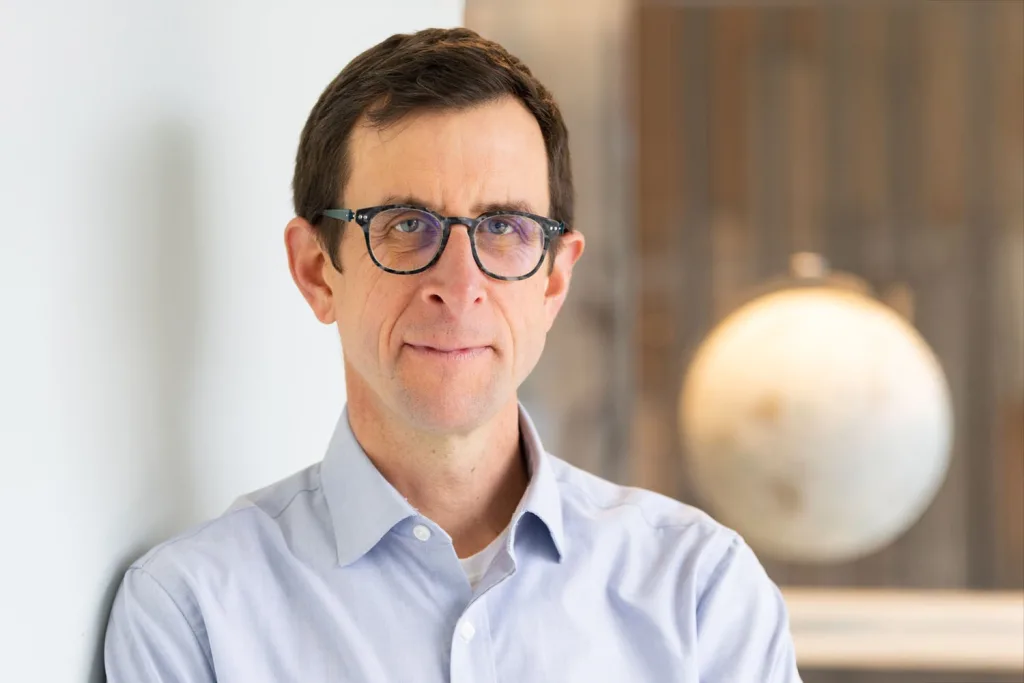David McGee, the esteemed William R. Kenan Jr. Professor of Earth and Planetary Sciences at MIT, has been appointed as the new head of the MIT Department of Earth, Atmospheric and Planetary Sciences (EAPS), effective January 15. He succeeds Professor Robert van der Hilst, the Schlumberger Professor of Earth and Planetary Sciences, who adeptly led the department for an impressive 13 years.
With a specialization in isotope geochemistry and geochronology, McGee’s research focuses on deciphering the history of Earth’s climate. His groundbreaking work is crucial for understanding how our climate system reacts during periods of rapid change. Since 2020, he has also contributed to fostering a collaborative community within the department as its associate head.
“David is an extraordinary researcher whose data-driven insights significantly enhance our approach to climate change,” states Nergis Mavalvala, dean of the School of Science and the Curtis (1963) and Kathleen Marble Professor of Astrophysics. “He is also a passionate educator, investing deeply in his students’ learning journeys and leading Terrascope, a distinctive first-year learning community dedicated to tackling sustainability issues.”
“I’m invigorated by the exceptional EAPS community, Rob’s remarkable leadership, and President Kornbluth’s vision for MIT to create effective and informed responses to climate change,” McGee remarked. “EAPS has a vital role in navigating today’s environmental challenges. Our approach must be rooted in a profound understanding of the Earth system and an awareness of our position within the universe.”
McGee’s investigative work aims to illuminate Earth’s responses to historical climate shifts. Utilizing sophisticated geochemical techniques and uranium-series dating, he and his team analyze stalagmites, ancient lake deposits, and deep-sea sediments collected from sites across the globe. This research seeks to identify patterns in wind and precipitation, evaluate water availability in arid regions, and examine the stability of permafrost over time. By establishing precise timelines, he aims to better understand the factors driving historical climate changes and to test the effectiveness of climate models.
In addition to his research, McGee has played a pivotal role in various MIT initiatives centered on environment, climate, and sustainability. He is a member of the MIT Climate and Sustainability Consortium Faculty Steering Committee and contributes to the faculty advisory board for the MIT Environment and Sustainability Minor.
Furthermore, McGee co-chaired MIT’s Climate Education Working Group, one of three groups formed under the Institute’s Fast Forward climate action plan. This group sought to highlight opportunities for enhancing climate and sustainability education at MIT across curricular and experiential learning levels.
In April 2023, the group organized the MIT Symposium for Advancing Climate Education, featuring discussions led by McGee and others on ways universities can innovate to equip students with the necessary skills and perspectives for thriving in a world increasingly shaped by climate challenges.
“David is transforming MIT’s undergraduate education by fostering meaningful collaborations with communities beyond our campus, teaching students that scientific discovery, while vital, must align with societal impacts,” notes van der Hilst. “His vision will significantly shape the department’s future.”
McGee’s dedication to education began early in his career. After earning a master’s degree in teaching, he spent seven years in middle and high school classrooms before completing his PhD in Earth and environmental sciences from Columbia University. He joined MIT’s faculty in 2012 and was honored with the Excellence in Mentoring Award in 2018 for his commitment to guiding students. In 2015, he took on the role of director of MIT’s Terrascope program.
“David’s exemplary teaching in Terrascope reflects his understanding that effective solutions must be discovered at the intersection of science and community engagement,” van der Hilst asserts. McGee received the School of Science Teaching Prize in 2023 for his work with Terrascope and was named a Margaret MacVicar Faculty Fellow, MIT’s highest teaching distinction, in 2022.
As associate head of the department, McGee collaborated with van der Hilst and student leaders to enhance community engagement within EAPS, improve support frameworks, and expand opportunities for students pursuing advanced degrees and careers in STEM fields.
Photo credit & article inspired by: Massachusetts Institute of Technology



